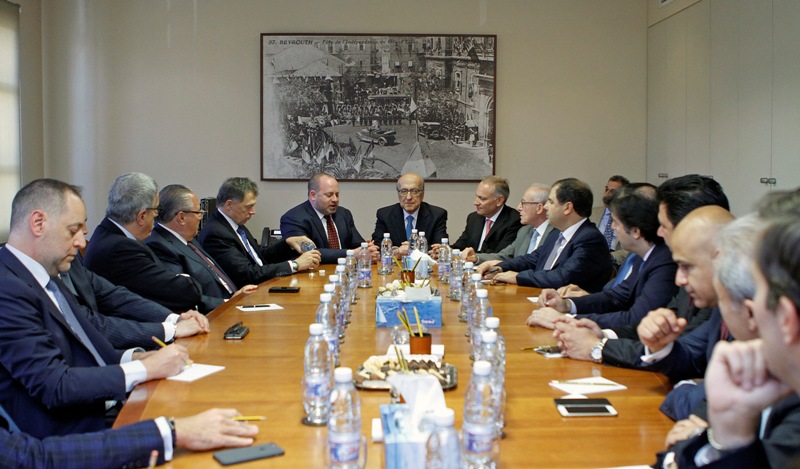Beirut-The U.S. assistant secretary for terrorist financing at the Treasury Department, Daniel Glaser, has informed Lebanese leaders about his country’s stance with regards to a law adopted by Congress that bans financial transactions with the so-called Hezbollah for being a terrorist group.
Glaser said he expected the Lebanese financial system to abide by U.S. rules.
He visited the Association of Banks in Lebanon and held talks with members of the association, which announced the commitment of Lebanese banks to such rules.
The association also said that “the implementation of sanctions is necessary to protect Lebanon’s interest … and guarantee the continuation of work in the world financial system.”
As part of his tour on Lebanese officials accompanied by U.S. Charge d’Affaires Richard Jones, Glaser met with Prime Minister Tammam Salam.
A statement issued by the PM’s office said discussions focused on several issues.
The U.S. official also met with former Premier Saad Hariri at the Center House in the presence of the latter’s advisor for economic affairs. He then held talks with Central Bank Governor Riad Salameh.
“The U.S. law does not target a Lebanese sect in particular as much as it targets the so-called Hezbollah as an entity, leadership and members,” Glaser was quoted as telling the Lebanese officials he met during his visit to Beirut.
Glaser stressed that his visit was not aimed at negotiating with Lebanon on the law. “The U.S. administration does not welcome Lebanese delegations to negotiate but to implement it,” he said about recent visits made by Lebanese officials to Washington.
The assistant secretary for terrorist financing stressed that “if the Lebanese state was keen on entering the U.S. banking and financial system and wanted to deal with it, then it should respect the U.S. laws and implement them.”
Following his meeting with ABL President Joseph Torbey, a statement was issued by the association saying “the fight against money laundering and terrorism financing is an ongoing work and has become an integral culture of the banking sector in Lebanon.”
He added that this work is evident by the legislation and circulars issued by Lebanese authorities on one hand, and the policies and practices executed by the Lebanese state on all levels on the other.
Torbey stressed that these efforts were in the interests of the country, economy and Lebanese people.
He also reminded of the laws passed by the Lebanese Parliament in November 2015 to combat money laundering and terrorism funding as well as to the circulars of the Central Bank, especially circulars 126 and 137.
Torbey also mentioned circular 20 issued Thursday by the Special Investigation Commission which explained the mechanism to implement the U.S law that came into force in December 2015.
